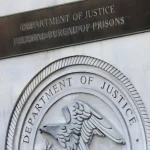
Julie Su, President Biden’s pick to lead the Department of Labor (DOL), has been a leading proponent of critical race theory (CRT) for decades, dating back to her time as a civil rights lawyer.
Su – who the Senate confirmed to be deputy DOL secretary in a party-line vote in July 2021 and who has served as acting secretary since March – has been a prominent supporter of CRT, according to a Fox News Digital review of her work since the late 1990s. The left-wing Asian American Pacific Islanders Civic Engagement Fund even credited Su last year with continuing “to push the leading edge of CRT in the legal academy.”
“Make your theories into arguments that stand up in court and into foundation proposals that will get us funding for front-line activism… talk about front-line activism and in-your-face street work in your conferences, faculty meetings, classrooms and give your students opportunities to do them,” Su remarked during the Critical Race Theory Conference at Yale University in 1997.
The conference’s attendees included Derrick Bell, who has been described as the “godfather of CRT,” and Lani Guinier, who former President Bill Clinton nominated for assistant attorney general but whose nomination was withdrawn after criticism about her views on racial justice and voting rights. In addition to CRT, conference attendees discussed “Queer Theory and LatCrit Theory.”
“Critical Race Theory asserts that Western society is steeped in persistent racial oppression, which law plays a significant role in creating and maintaining,” a posting from the 1997 event stated.
Su’s remarks at the event, meanwhile, were highlighted in a CRT essay she co-authored in 2002 with Eric Yamamoto, a University of Hawaii professor of law and social justice. The essay was published in an anthology of works titled “Crossroads, Directions and a New Critical Race Theory.”
CONSERVATIVES REJOICE AFTER KEY BIDEN NOMINEE WITHDRAWS: ‘ENORMOUS VICTORY FOR FREE SPEECH’
“The attack by some that Critical Race Theory is about race, power, and politics but not about law tells us that it is law – or, more specifically, how we traditionally do law – that needs to change,” Su’s essay states.
“Critical Race Theory writing has begun to explore the new multifaceted coalitions. It has pioneered the concept of intersectionality to explain the confluence of race, class, gender, and sexual orientation and the law’s often hidden contribution to the maintenance of interconnecting forms of social oppression,” it continues. “In this fashion, Critical Race Theory and its related schools have provided a framework for diverse alliances to combat the anti-affirmative-action assault.”
The essay went on to take aim at “colorblindness and individuality,” saying it constricts claims against “dominant white interests.” Su and Yamamoto further argue in the piece that compassion, dignity, rights and equality are not “givens” for racial minorities and that racial diversity must be acknowledged when fighting White racism.
In 2005, Su authored a separate paper titled “Progressive Critique of the Current Socio-Political Landscape: Corporations and Economic Justice.” In the paper, she postulated that corporations “promote and perpetuate economic injustice” and that society is built on White privilege.
“Conservatives like to argue that government should get out of the way and that the market will decide,” her paper, published in the Seattle Journal for Social Justice, states. “But just as the idea of ‘race neutral’ is not really neutral when you have a society built on white privilege and systemic racial subordination, government inaction really means government sanction and support for unfettered corporate greed.”
BIDEN NOMINEE WANTS TO HIJACK LITTLE-KNOWN AGENCY TO RAM THROUGH CLIMATE AGENDA
Su also wrote in the 2005 academic paper that progressives must acknowledge corporations aren’t going away and, therefore, work “with, through, and against them” to create a more “just world.”
And in 2010, Su took part in a panel discussion titled “Intersectionality and the Courts” at the University of California, Los Angeles Critical Race Studies Symposium. The event was organized by professor Cheryl Harris who has notably argued in the past that property rights are a form of White privilege and that governments must redistribute power and resources “to rectify inequities to achieve real equality.”
During the panel discussion, Su said CRT and intersectionality should be utilized by lawyers. She also noted two studies that concluded “the racial or gender identity of the judge has an impact on the outcomes of cases.”
Biden officially announced that he would nominate Su to lead the DOL on March 1.
“Julie knows in her bones as well the people who get up every morning and go to work and bust their necks just to make an honest living deserve something – someone to fight on their side to give them an even shot. Just a – just a shot so they don’t get stiffed,” Biden said at the White House. “Julie has spent her life fighting for that vision, her entire professional career.”
However, Su reportedly faces an uphill battle to be confirmed by the Senate. Sen. Joe Manchin, D.-W.Va., has expressed concern about Su to the White House, The Washington Post reported on Thursday, potentially meaning every other Democratic senator, including those facing tough 2024 re-election bids, must vote for her.
And her nomination has been loudly opposed by a wide range of conservative advocacy and small business groups.
Su’s confirmation hearing before the Senate Health, Education, Labor, and Pensions Committee is scheduled for April 20.
The DOL didn’t immediately respond to a request for comment.
Scroll down to leave a comment:








